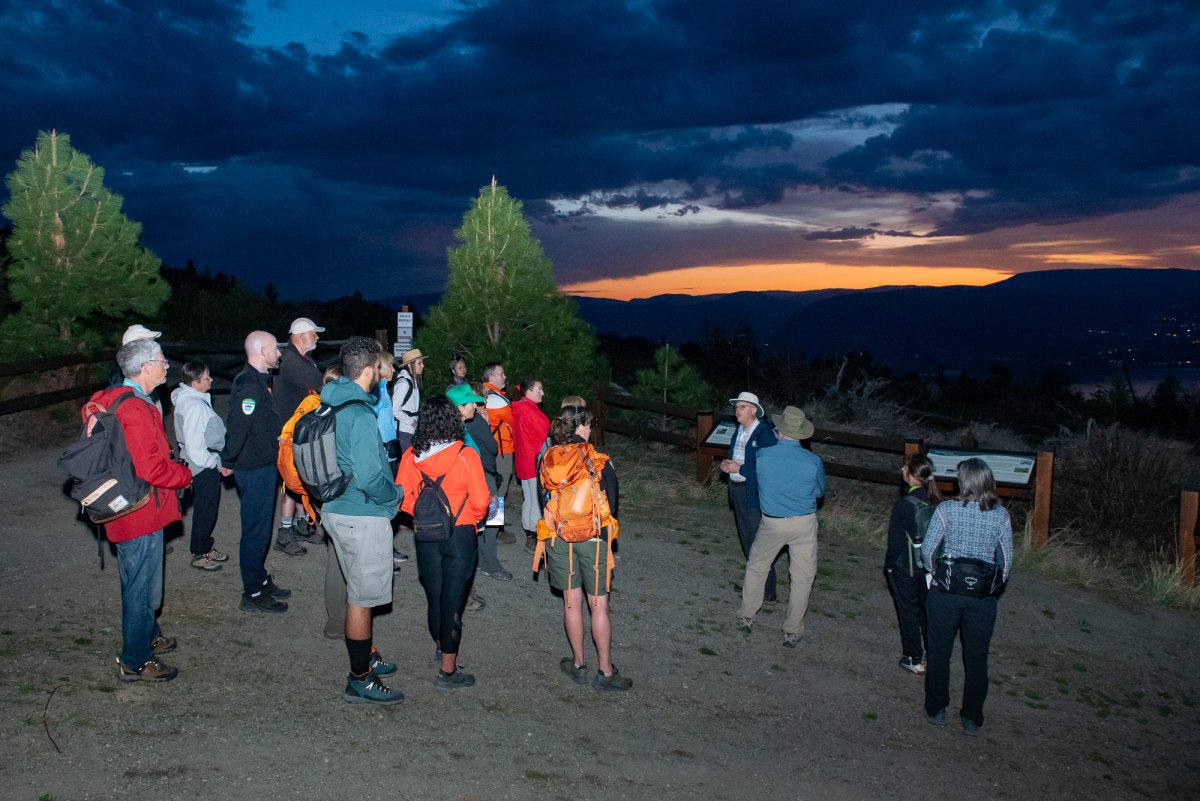The lights will remain dimmed at a more than 400-hectare Central Okanagan regional park that has been proclaimed a Nocturnal Preserve by the Royal Astronomical Society of Canada, a rare and ecologically valuable designation.

Johns Family Nature Conservancy Regional Park joins Old Man on His Back Prairie and Heritage Conservation Area in Saskatchewan and Ann and Sandy Cross Conservation Area in Alberta as Nocturnal Preserves.
“The Nocturnal Preserve designation for Johns Nature Conservancy Regional Park is a fantastic addition to our regional parks system. It showcases our unwavering dedication to preserving our natural environment by protecting the sensitive ecosystems and species that depend on them,” Kelowna Coun. Loyal Wooldridge said.
“With the help of the Central Okanagan Land Trust, we can now ensure that artificial light is minimized, allowing the natural rhythms of light and darkness to take center stage. Visitors can now witness the beauty of the night sky, which is often lost in our ever-growing communities.
“This is another step of climate action, benefiting local residents and visitors, animals, and the environment.”

A Nocturnal Preserve is an area in which artificial lighting is very limited and strictly controlled, and efforts to engage municipalities in the reduction of light pollution are ongoing. The primary focus is to protect the nocturnal environment. The Preserve delivers public education programs about the night sky, nocturnal environment, and light pollution abatement.
In fall of 2019, the regional board approved a recommendation to seek the Dark-Sky Site designation for the regional park, located along the south slopes outside of Kelowna.
“Artificial light at night not only obscures our view of the starry night sky but it also alters the natural rhythm of daylight and darkness that is essential for the health of terrestrial and aquatic ecosystems,” Bob King, chair of the light pollution abatement committee of the Royal Astronomical Society of Canada, said.
“Improving how and when we use artificial light at night will reduce human impact on the environment and will protect the dark sky for anyone who enjoys the beauty and cultural heritage of the starry sky.”

The Royal Astronomical Society of Canada, Okanagan Centre Outreach Program Director Colleen O’Hare says, “We have lost our connection to the night sky. We no longer have the ability to step outside, look up, and be in wonder. A Nocturnal Preserve provides this and allows us to reconnect with the universe and find our place in it.”
The Regional Parks Visitor Services program anticipates providing special night viewing sky programs and interpretive site information in the park, supported by volunteers from the Royal Astronomical Society Okanagan Centre branch and Indigenous knowledge keepers.




Comments